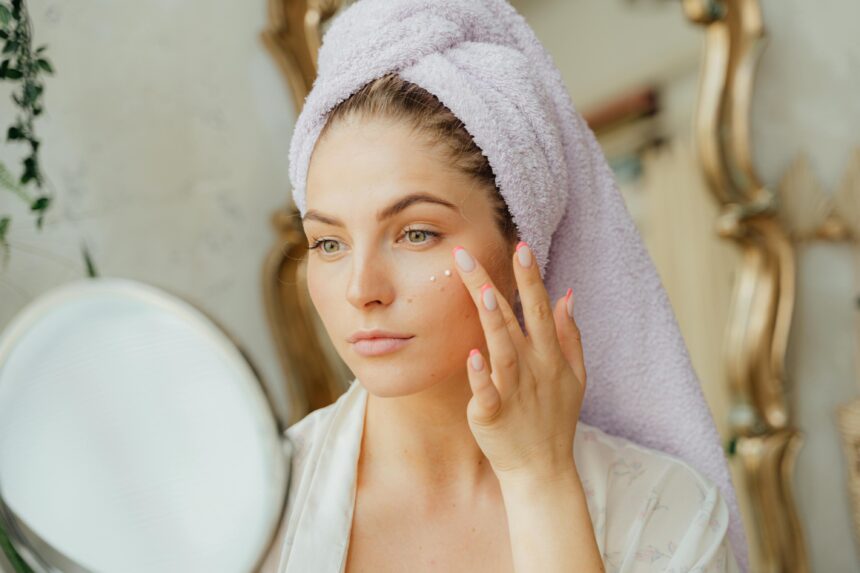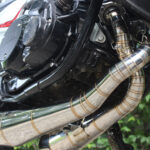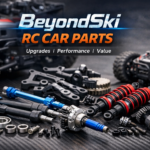What Is UVlack?
When it comes to skin health, product performance, and even material durability, one of the most persistent challenges is exposure to ultraviolet (UV) radiation. UV rays, emitted naturally by the sun and artificially by certain light sources, can damage skin cells, degrade materials, and accelerate aging. That’s where UVlack enters the conversation — a next-generation solution designed to address UV-related damage more effectively than conventional methods.
At its core, UVlack isn’t just another sunscreen or coating. It represents a broad category of protective technology — from skincare formulations to industrial coatings — all designed to absorb, reflect, or neutralize harmful UV rays before they cause damage. The name “UVlack” is often used to describe specialized products or systems engineered with advanced UV-blocking components, capable of delivering long-lasting protection without compromising performance, aesthetics, or comfort.
Key takeaway: UVlack is more than a product; it’s a multi-purpose protection technology that extends beyond skincare into materials science, fashion, and environmental design.
Understanding UVlack – Definition, Purpose, and Scope
To understand UVlack fully, it’s important to break down its definition and function. UVlack refers to a class of protective solutions, coatings, or formulations specifically engineered to counteract ultraviolet radiation. These solutions can be applied directly to skin, fabrics, construction materials, or electronic devices, providing an invisible yet powerful shield against UV exposure.
Purpose of UVlack
-
Prevent skin damage: Minimize risks like sunburn, premature aging, and skin cancer.
-
Preserve materials: Extend the lifespan of plastics, paints, and fabrics exposed to sunlight.
-
Enhance product safety: Ensure sensitive surfaces and technologies maintain their properties even under intense UV exposure.
Scope of Application
The versatility of UVlack makes it applicable across multiple domains:
-
Personal care: Sunscreens, daily moisturizers, and anti-aging serums.
-
Fashion: UV-protective clothing and accessories.
-
Industrial use: Automotive coatings, outdoor equipment, and building materials.
-
Technology: Smart glass, sensors, and wearable devices with UV-protection layers.
Mini insight: The true strength of UVlack lies in its adaptability — it’s not restricted to a single use case but is instead a foundational technology across industries.
Why UV Protection Is More Important Than Ever Before
The importance of UV protection isn’t new — but in today’s world, it’s more crucial than ever. Ozone layer depletion, increased outdoor exposure, and longer lifespans have all amplified the risks associated with UV radiation.
Health Implications
Overexposure to UV rays can cause:
-
Skin damage: Including sunburn, pigmentation, and premature aging.
-
Serious conditions: Such as melanoma and other skin cancers.
-
Eye problems: Like cataracts and macular degeneration.
Environmental and Material Risks
UV doesn’t only affect living tissue. It can break down plastics, fade pigments, weaken fabrics, and degrade building materials — resulting in shorter product lifespans and higher replacement costs.
Mini summary: As both human lifestyles and global environmental conditions change, technologies like UVlack have become a necessity, not a luxury, in preventing UV-related damage.
The Science and Technology Behind UVlack
Behind the sleek packaging of UVlack products lies a complex scientific foundation. At the most basic level, UVlack works by either absorbing, reflecting, or scattering UV rays to stop them from interacting with sensitive materials or skin cells.
Core Mechanisms of UVlack
-
Absorption: UV-absorbing compounds (like organic filters) capture and convert UV radiation into harmless heat.
-
Reflection: Micro-particles or coatings reflect UV light away from the surface.
-
Neutralization: Advanced materials neutralize free radicals produced by UV exposure, reducing oxidative stress.
In many modern formulations, UVlack uses nanotechnology and smart polymers to achieve superior performance. These allow the protective layer to remain thin, invisible, breathable, and long-lasting — key advantages over traditional solutions.
Mini takeaway: UVlack’s strength is rooted in advanced materials science, combining multiple protective strategies to deliver comprehensive UV defense.
Real-World Applications of UVlack Across Key Industries
The applications of UVlack extend far beyond skincare, finding relevance in several high-impact sectors. Its protective capabilities make it a critical component in industries where durability, safety, and longevity are priorities.
Personal Care & Skincare
UVlack-enhanced formulas are now common in sunscreens, moisturizers, and serums, offering broad-spectrum protection without greasy residue or white cast.
Automotive & Construction
From car paint to solar panels, UVlack coatings help surfaces withstand prolonged sun exposure without fading, peeling, or degrading.
Fashion & Textiles
Clothing manufacturers incorporate UVlack-treated fabrics to offer wearable sun protection — a particularly valuable feature in sportswear and outdoor apparel.
Electronics & Wearables
UV-blocking layers safeguard sensors, displays, and plastic components from UV-related breakdown, improving product lifespan.
Mini summary: Whether in your daily moisturizer or the paint on your car, UVlack plays a quiet but powerful role in protecting products and people from ultraviolet damage.
UVlack vs Traditional Sunscreen and UV Filters
At first glance, UVlack might seem similar to regular sunscreen or basic UV filters. However, there are significant differences in formulation, function, and effectiveness.
| Feature | Traditional Sunscreen | UVlack Technology |
|---|---|---|
| Primary Function | Protect skin from UV rays | Protect skin, materials, and devices |
| Mechanism | Mostly absorption or reflection | Absorption, reflection, neutralization |
| Durability | Needs frequent reapplication | Often long-lasting, even in harsh conditions |
| Applications | Skin only | Skin, materials, coatings, textiles |
| Advanced Features | Limited | Often includes smart materials, nanotech, or multifunctional protection |
While sunscreen is crucial for daily skin protection, UVlack offers a more holistic approach — capable of protecting diverse surfaces and maintaining performance under more demanding conditions.
Mini insight: Think of sunscreen as a tool and UVlack as a platform — one is for personal use, while the other has the potential to redefine protection across industries.
Skincare Innovation and Anti-Aging Benefits of UVlack
UV radiation is one of the leading causes of premature aging, contributing to wrinkles, dark spots, and loss of elasticity. UVlack’s role in skincare goes beyond basic protection — it is now a cornerstone of anti-aging innovation.
Advanced Formulations
Modern UVlack-based skincare products often combine broad-spectrum UV filters with antioxidants, peptides, and hydration agents. This multi-layered approach:
-
Reduces oxidative stress caused by free radicals.
-
Helps repair existing sun damage.
-
Strengthens the skin barrier over time.
Daily Defense and Long-Term Benefits
Consistent use of UVlack-infused products not only prevents visible signs of aging but also helps maintain youthful skin texture, even tone, and resilience over decades.
Mini takeaway: In skincare, UVlack isn’t just about sun protection — it’s about preserving skin health and youthfulness for the long term.
UVlack in Fashion – Sun Protection Meets Style
The fashion industry has always been about more than just aesthetics — it’s also about innovation, functionality, and lifestyle adaptation. UVlack is now playing a key role in bridging the gap between style and science, offering sun protection without sacrificing design.
Wearable UV Protection
Thanks to advances in textile engineering, many fashion brands are now integrating UVlack-treated fibers into their collections. These fabrics block or reflect harmful UV rays while maintaining breathability, softness, and comfort. You’ll find UVlack technology in:
-
Outdoor and sportswear
-
Everyday casual clothing
-
Hats, scarves, and accessories
Everyday Benefits
What makes UVlack-treated clothing special is its ability to provide passive, continuous protection. Unlike sunscreen, it doesn’t wash off or require reapplication. This is especially beneficial for people who spend long hours outdoors — from hikers and cyclists to construction workers and children.
Mini summary: UVlack is transforming fashion into a functional shield, merging UV protection with everyday wear for safer, smarter style.
Environmental Impact and Sustainability of UVlack
As sustainability becomes a global priority, it’s important to evaluate any new technology through an environmental lens. Fortunately, many UVlack innovations are being developed with eco-friendly principles in mind.
Sustainable Formulations
Traditional sunscreens often contain chemicals that harm marine ecosystems. In contrast, UVlack-based products can be designed using biodegradable ingredients and non-toxic compounds that minimize ecological impact while maintaining high performance.
Longer Product Lifespans
Another major sustainability advantage of UVlack is its role in extending material longevity. By preventing UV-induced degradation, products last longer and require fewer replacements — reducing waste and resource consumption over time.
Mini insight: UVlack not only protects people and products but can also contribute to a more sustainable future by reducing pollution and conserving resources.
Smart Technology and the Digital Future of UVlack
One of the most exciting frontiers for UVlack is its integration into smart technology. As devices and materials become more intelligent, UV protection is evolving beyond passive shielding into active, responsive systems.
Intelligent UV Monitoring
Some emerging devices now include sensors that detect UV intensity and adjust protection levels accordingly. For example:
-
Smart windows that darken in high UV conditions
-
Wearable devices that alert users when UV exposure is too high
-
Skincare products that adapt their release of protective agents based on UV levels
Data-Driven Innovation
With the rise of the Internet of Things (IoT), UVlack technologies can now be part of a broader data ecosystem — helping users track exposure patterns, optimize outdoor activities, and make informed decisions about protection.
Mini takeaway: UVlack’s future lies not just in shielding us from UV rays but in helping us understand and manage our exposure intelligently.
Limitations and Challenges of UVlack
Despite its many strengths, UVlack is not without limitations. Understanding these helps set realistic expectations and guides future innovation.
Current Challenges
-
Cost: Advanced UVlack formulations can be more expensive than traditional solutions.
-
Availability: Not all industries have fully adopted UVlack technology, limiting consumer choices.
-
Regulation: As with any new technology, regulatory approval processes can delay market entry.
Ongoing Research
Scientists are actively working to address these issues by:
-
Developing more cost-effective production methods.
-
Expanding applications to more consumer products.
-
Ensuring environmental and health safety standards are met globally.
Mini summary: UVlack is powerful, but widespread adoption depends on overcoming cost, accessibility, and regulatory challenges — hurdles that ongoing research is steadily addressing.
12. Who Should Consider UVlack?
UVlack isn’t just for scientists or tech companies — it’s a solution with broad relevance across everyday life. Here’s who can benefit most from incorporating UVlack-based products:
-
Outdoor Enthusiasts: Hikers, athletes, and gardeners who spend significant time under the sun.
-
Professionals: Construction workers, lifeguards, and delivery personnel with extended sun exposure.
-
Families: Parents seeking safer, more reliable protection for children.
-
Businesses: Companies needing UV-resistant materials for products, infrastructure, or packaging.
Mini insight: Whether for personal health, product durability, or corporate sustainability, UVlack offers tailored solutions for a wide range of users.
13. Final Thoughts
As UV exposure continues to be a major concern — affecting everything from skin health to product performance — solutions like UVlack are stepping into the spotlight. What sets UVlack apart is its multi-layered value: it’s not just a skincare ingredient but a versatile technology reshaping industries, enhancing sustainability, and even informing smarter decisions about sun exposure.
Looking ahead, we can expect UVlack to become more accessible, affordable, and intelligent — integrating seamlessly into everyday products and environments. The future of UV protection isn’t just about shielding ourselves from the sun; it’s about building a world that thrives under it.
FAQs About UVlack
1. What is UVlack?
UVlack refers to advanced protective technologies designed to block, absorb, or neutralize harmful ultraviolet radiation. It’s used in skincare, fashion, construction, technology, and more.
2. How does UVlack work?
It works through a combination of mechanisms — absorption, reflection, and neutralization — to prevent UV rays from causing damage to skin, materials, or devices.
3. Is UVlack better than normal sunscreen?
While traditional sunscreen is highly effective for skin protection, UVlack goes further by offering multi-industry protection and often longer-lasting performance, making it more versatile in many contexts.
4. Can I use UVlack products every day?
Yes. Many UVlack-based skincare products and fabrics are designed for daily use and provide consistent protection without harmful side effects.
5. Where can I find UVlack in real products?
You can find UVlack technology in high-end sunscreens, UV-protective clothing, automotive coatings, building materials, and smart devices that incorporate UV sensors or shielding layers.
Conclusion
UVlack represents a new era in protection — not just for our skin, but for the materials, devices, and environments that shape our daily lives. Its science-driven approach, diverse applications, and growing role in sustainability make it far more than a trend; it’s a forward-looking solution to a timeless challenge. As research and innovation continue, UVlack will likely become an essential part of how we live, work, and protect ourselves in a sunlit world.
For more quality, informative content, visit writewhiz







